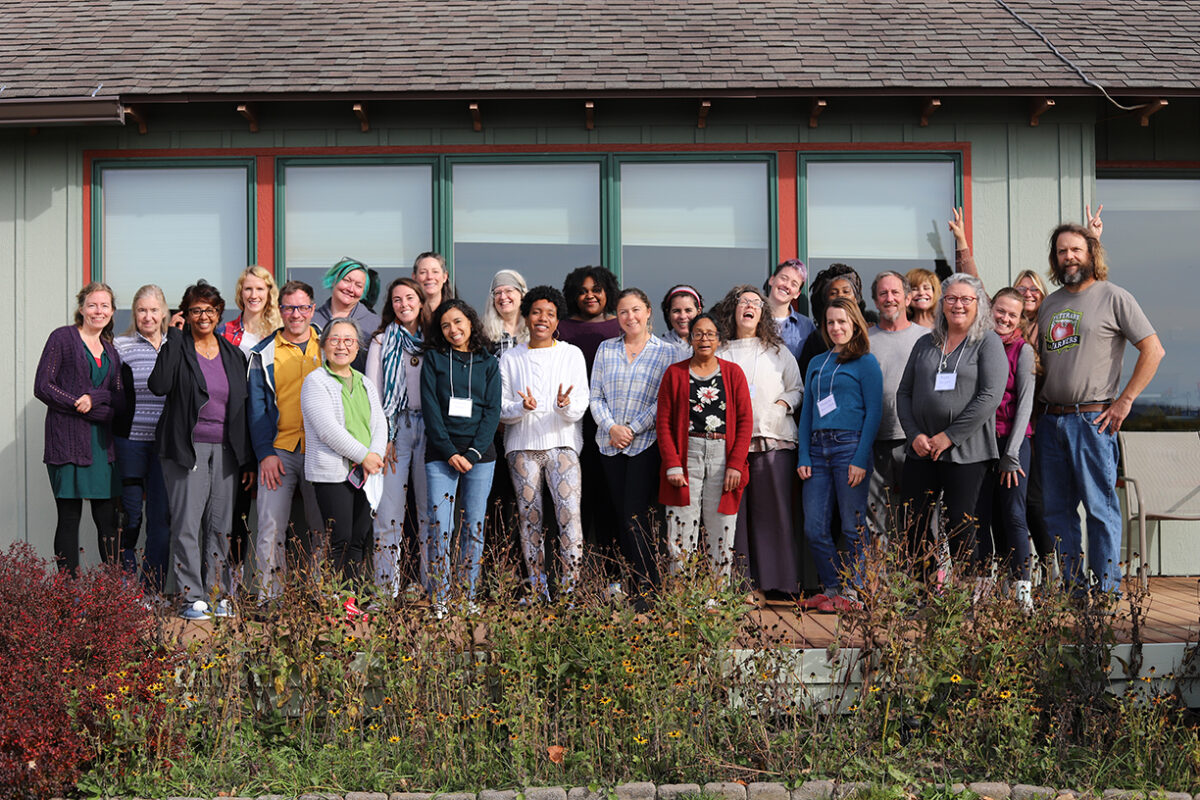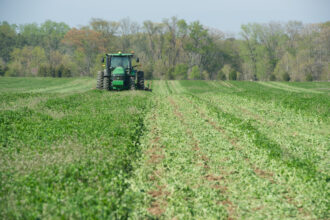Note: This article in our Managing Stress series was contributed by Violet Stone, a project coordinator at the Cornell University Small Farms Program and the Northeast SARE professional development coordinator for New York.
“One of the hardest things we must do sometimes is to be present to another person's pain without trying to "fix" it, to simply stand respectfully at the edge of that person's mystery."
– Parker Palmer

A lot of attention is being brought to how taxing the work of farming in these times can be to farmers’ minds, bodies and spirits. We know that the challenges are not just in the hard physical work, the constant adaptation to extreme erratic weather, the breadth and depth of skills required, and the often elusive profit margin. We know that farmers, like all of us, need time and strength to focus on tension in relationships, wellness and health, healing from trauma and a sense of belonging, connection and community.
At the same time, many ag service providers are oftentimes stretched too thin to give health and wellness the attention it needs.
So what can we do when it seems neither farmers nor supporters can add one more “thing” onto their plates, yet many of us are stressed out, disconnected, fatigued or depressed?
That is where our Northeast SARE Professional Development project “Reconnecting with Purpose: Renewal for Agricultural Educators and Changemakers,” hosted by the Cornell Small Farms Program, seeks to help (SARE project SNE20-010-NY). In this program, our participants—a mix of 25 educators, change-makers, land stewards, farmers and activists in the New York farm and food system—convene in a retreat space where we begin by settling into a long, slow, luxurious stillness. Once centered and grounded, we as facilitators then invite the group into a carefully curated journey of themes and reflections. For some, this means naming barriers and burdens, and letting go of them or finding ways around them. For others, it means rediscovering and reclaiming birth gifts and strengths that are life-giving. For everyone, it means leaning into our inherent human capacity to deeply listen, receive and support one another.
As facilitators, we are not experts on wellbeing, nor do we have academic degrees in mental-health-related fields. We are genuinely caring and committed to creating a safe and trustworthy container for our participants to uncover and speak their truths. We both lead and follow, share and listen alongside our peers and colleagues. We are grateful to draw from a set of practices and principles put forward by the Center for Courage & Renewal to guide our ways of being together in the program. The touchstones we use come from multiple wisdom traditions and have served thousands of communities around the world over the past 30 years. As facilitators, we practice them not just in “Reconnecting with Purpose” but in many aspects of our work and lives.
Two of these practices are offering attentive, open-hearted listening and asking open, honest questions. During the program, these practices are very simply the only ways we relate to one another in small groups. Too often when we confide in a friend or colleague about a quandary or challenge we are facing, they fire back advice or their own solutions. When we are received with warm attention and questions in service of helping us hear ourselves—our inner teacher—it opens exploration. It can be surprising, even startling, to realize how readily the voice of truth and clarity arises from our inner depths when invited by a trustworthy peer. The more practiced we become inviting and listening to our inner teacher the more we become empowered by the reservoir of gifts, strengths, energy, courage—stirring and awakening—within us.
The program has given me permission to say yes to things that benefit myself as a whole person, not just the compartments I had been functioning in. In doing so it has also opened me to see things again and truly take time to appreciate the wonder and beauty around me.
Bethany Wallis, director of the Northeast Organic Farming Association
Our yearly cohorts meet for a total of 5 months during the quieter, cold months, from September to March. We begin and end with 2.5-day retreats, and convene virtually for 1.5-hour peer learning circles in the months between. At the end of our journey together, we have uncovered a lot. Our respective learning, realization and discovery is unique to each of us. Some quit their jobs or take a break from farming to pursue a vocation that is more aligned with their needs or passions. Others return with a renewed sense of what is alive and meaningful and how they want to create change. In our closing circle, participants usually express that the greatest gift of the program is the sense of love, care and connection they felt in community.
One participant, Deep Roots Project founder Maya Marie, says, "More so now than before I'm working towards just being. I'm passionate about the work I do and the folks I get to work with, but this program has supported my journey in taking a look at myself outside of productivity and external expectations."
While meaningful and lasting friendships do form, eventually as time goes by and our lives evolve, our group begins to lose touch. But the ways of being together—the ways of stepping into luxurious stillness, receiving others with open-hearted listening and asking open questions, inviting and learning from our inner teachers—those ways create love, care and connection toward ourselves and others wherever our paths take us.
Want more information? To learn more about the Reconnecting with Purpose program, visit https://smallfarms.cornell.edu/projects/reconnecting-with-purpose/.
This material is based upon work that is supported by the National Institute of Food and Agriculture, U.S. Department of Agriculture through the Sustainable Agriculture Research and Education (SARE) program. Any opinions, findings, conclusions, or recommendations expressed in this publication are those of the author(s) and should not be construed to represent any official USDA or U.S. Government determination or policy.
